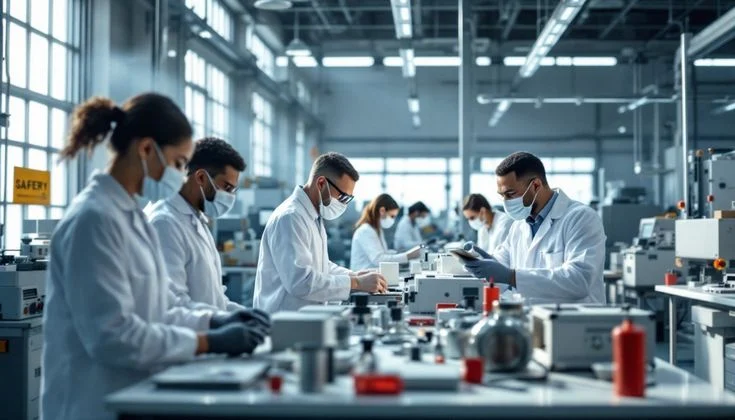Importance of Food Safety and Quality in RR BUSINESS GROUP more than just a source of nourishment; it is essential to culture, health, and overall well-being. However, until a crisis occurs, the safety and quality of the food we consume are frequently overlooked. Food quality and safety are more important than ever in the connected world of today.
Protecting Health and Well-Being
Food safety plays a crucial role in protecting public health by preventing foodborne illnesses caused by harmful bacteria, viruses, parasites, and chemical contaminants. Consuming unsafe food can result in a range of health problems, from mild digestive upset to life-threatening conditions. According to the World Health Organization (WHO), millions of people fall ill each year due to contaminated food, with significant numbers resulting in fatalities. By ensuring proper handling, preparation, and storage of food, we can minimize these risks and create a healthier, safer food system for all.
Ensuring Nutritional Value
Food quality encompasses more than just beauty or flavour; it also includes nutrients. Nutrients, vitamins, and minerals that are vital for sustaining health are preserved in high-quality meals. Inadequate handling, processing, or storage can deplete these nutrients, lowering the food’s nutritional value. Providing wholesome and pleasurable food is essential to ensuring quality.
Building Consumer Confidence
Customers anticipate that the food they consume will be both safe and of superior quality. When these expectations are met, it builds trust in brands, businesses, and supply chains. Conversely, food safety scandals or poor-quality products can erode consumer confidence and damage reputations irreparably. Companies that prioritize safety and quality standards strengthen their relationships with customers and stand out in competitive markets.
Empowering Awareness and Education
A key component of the solution is educating people and organisations about the Importance of Food product Safety and Quality. Foodborne illness can be significantly reduced by taking easy steps like using the right washing, cooking, and storage methods.
Promoting Sustainability
The need for high-quality and safe food is directly related to the objectives of sustainability. Better handling and storage techniques, for instance, can help cut down on food product waste, which is a major problem in the modern world where one-third of all food produced is wasted. In addition to reducing their negative effects on the environment, sustainable production and distribution methods guarantee that resources are used effectively.
The Role of Technology
Blockchain, artificial intelligence, and the Internet of Things are transforming the quality and safety of food. IoT devices continuously monitor storage conditions, blockchain guarantees supply chain transparency, and artificial intelligence anticipates and averts safety hazards. By utilising these technologies, stakeholders’ trust is increased and high standards are maintained.
Conclusion
They are necessary for a more sustainable and healthy future. We can safeguard public health, improve nutrition, foster trust, and advance environmental and economic objectives by tackling these problems. Everyone benefits from taking steps to maintain Importance of Food Safety and Quality, whether they are consumers, businesses, or legislators.
